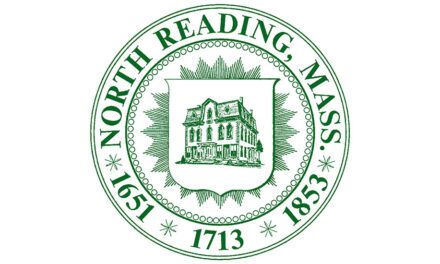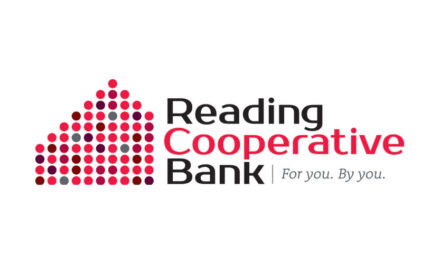Published in the March 15, 2018 edition
By MAUREEN DOHERTY, Editor
Our town has transformed over the decades from a small but proud farming and working class community into a thriving metropolitan Boston bedroom community with many wonderful amenities.
But a common theme has dogged our town for decades – its water resources – and by extension, reliance on individual septic systems, especially in environmentally sensitive areas like the Martins Pond neighborhood and the town’s industrial/office zone along Concord Street.
Flipping through six decades of Transcript newspapers reveals recurring headlines detailing the town’s ongoing water struggles on an almost weekly basis. The script reads like the movie “Groundhog Day.” In the late 1950s, the growing town needed more wells to meet post-war demand. In the late 1960s and early 1970s, Lynnfield and North Reading regularly locked horns trying to negotiate the terms of creating a shared reservoir that could pass Town Meeting in both towns. Sound familiar? The idea was eventually scrapped after countless hours were spent investigating options.
Forty years ago, the town’s troubles caused by the contamination of the Stickney Well by an out-of-town industrial polluter were just coming to light. The loss of that well eventually led to a settlement and sent the town again looking for water sources out of which would come the arrangement in effect for the past 27 years. This arrangement enables the town to purchase a good portion of its water from Andover, made possible by legislative approval of our inter-basin transfer (IBT) to bring water from the Merrimack River basin into the Ipswich River basin, and leading to this town being one that Andover can count on to be its largest wholesale purchaser of water, thus supporting 28% of Andover’s water system budget. Put another way: if North Reading leaves this arrangement, Andover’s ratepayers will see their costs rise 28%.
Thirty years ago, the town faced more growing pains during the condominium building craze. When the former owners of the Hillview Country Club wanted to sell out to a developer who proposed building hundreds of condo units on top of a sensitive town aquifer, we didn’t fold; we pushed back. Fortunately, a very active study committee brought plans swiftly forward to Town Meeting and overwhelmingly convinced voters to take that property by eminent domain.
That lone, forward-thinking decision by the town to protect the aquifer and get into the golf business (and secondarily the function hall business) resulted in the creation of an enterprise fund that has changed the face of this town for the better.
The Hillview Enterprise Fund channels all of its resources into either improving that property or safeguarding the town’s open spaces and active or passive recreational opportunities. It has to; that’s the way it was written. It was a decision which the townspeople and its leaders thought outside the box and negotiated from a position of strength, not weakness: Our town would no longer be at the mercy of a developer. We were going to write our own rules because being in business with us has value.
Now, the town is at a similar crossroads. It is time to negotiate from a position of strength when it comes to which entity is going to have the honor of providing North Reading with water for at least the next century – Andover or the MWRA. It should be viewed an opportunity, not a burden, to partner with us for water, much the same way that Amazon shops around for the best major metropolitan area when siting its next big headquarters.
Both entities have something to gain by doing business with us because we have proven to be an excellent customer who negotiates fairly, and who fully informs our citizenry of the advantages and pitfalls of both scenarios.
What must be factored into the water decision in the coming weeks is our town’s future wastewater needs, most especially for the Concord Street industrial district, because developing this area to its fullest potential will help ease the overall property tax burden. We also must not forget the wastewater needs of the Martins Pond residential neighborhood because getting those lots off septic should lead to a cleaner, swimmable pond for future generations.
Therefore, it’s time to create an entity like a Concord Street Enterprise Zone or Economic Development Zone for the purpose of pooling resources – financial as well as intellectual – to deal strictly with the town’s wastewater options and get serious about it, just like the creation of the Hillview Commission in 1987 took on the task of acquiring the Hillview and by the mid-1990s that affirmative decision had enabled the town to acquire the land for Ipswich River Park, saving it from becoming just another subdivision of 27 homes with one new soccer field that developer had promised to donate to the town.
For those who say government involvement never results in a better outcome than private industry could accomplish, Ipswich River Park is the poster child for proving that axiom wrong. While some public-private partnerships don’t work out for the better, we have proven that government and private interests can work cooperatively to achieve beneficial results for all, including the acquisition of the former state-owned J.T. Berry hospital land to better round out the town’s housing needs, and saving the Damon Tavern by providing space for the town to lease to a private entity (currently NORCAM, previously real estate companies) while preserving tavern rooms, and Rufus Porter Murals in the upstairs ballroom and two lower level rooms for use by the town’s historic preservationists.
So let’s task this new enterprise group with getting Concord Street business owners involved as stakeholders – one or two as voting members –paired up with citizens and town officials who can negotiate with the MWRA or Andover for sewerage needs. The town must plan out the maximum square footage that this area could handle in the next five to 50-plus years as if sewerage was an option today and current trucking terminals and one- or two-story buildings were transformed into four-, five- or six-stories overnight (long a dream of past planners) with an intention to make development decisions that also protect the wetlands and surrounding environment. For starters, require the use of gray water to maintain the landscape in the Concord Street district to conserve resources.
The environment in this area of town has been under assault for decades, including oil spills (such as an overturned oil tanker on I-93 in Oct 1992 when oil leached into the wetlands that led to the installation of monitoring wells) and years of untreated storm water entering drainage systems before those regulations were upgraded by the state in recent years.
We’ve been told that whichever entity provides the town with water needs to also be a provider of town sewerage down the road – it’s all or nothing. But that is inside-the-box thinking at the negotiating table. Concord Street and Martins Pond need to be dealt with in the near term and can be structured in such a way as to enable it to occur separately given their geographic proximity to two different destinations, Concord Street to the MWRA, and Martins Pond to Lawrence via Andover. Doing so would be less disruptive to the rest of the town during construction as well.
The town could prove to potential wastewater providers what this potential flow would be on Concord Street — and provide a framework for these Concord Street businesses to form a coalition that requires all of them to invest in the sewerage system as though they were paying a condo assessment with a rate structure modeled on usage and tiers, just like a water bill. An Economic Development Zone and affiliated fund would keep control within the town’s hands for oversight and enable smaller, viable businesses to not get priced out of existence or have an excuse to stick with their old septic systems if they have a voice at the table.
If this scenario could be developed we think it would be attractive to the MWRA to handle Concord Street as a singular entity regardless of whether the town’s potable water came from the MWRA or Andover. If the water is from Andover, the sewerage contract is gravy to the MWRA as they would not have to provide water infrastructure to the zone and they’d be paid for every flush with water that hadn’t drawn down its own system.
We already have an inter-basin transfer for water; a similar scenario for a sewerage zone would not be much different, especially if the usage projection at maximum capacity were quantifiable for the permit.
Any scenario would need a provision that allowed a tiny assessment to be earmarked for perpetual maintenance of the infrastructure since the rest of the town would not be subsidizing construction of the sewer lines. And as good corporate citizens who would be maximizing their land investment – in some cases doubling, tripling or quadrupling their footprint by now being able to build taller structures – a pool should be developed in the enterprise zone available to residents of the Martins Pond neighborhood to subsidize their investment in sewerage, perhaps with zero interest loans payable over 20 years. Or who knows, maybe it would be so successful that grants and usage assessments could help fund 50 percent or more of the residents’ investment as an incentive for them to get on board. Again, think outside the box. This issue has been studied for decades with no movement.
As future neighborhoods or enterprise zones are identified for conversion from septic to sewer, this enterprise fund would be available to them as well.
It’s time for North Reading to stop being Cinderella at the ball by being at the mercy of Andover or the MWRA. The town brings value to the table as a water customer in the form of either reduced water rates to Andover consumers or profit to the MWRA. The town would also bring value to the table as a sewage customer in either town down the road.
From a fiduciary responsibility standpoint to the town’s water ratepayers (that’s everyone except the few private well owners), Andover is the clear choice for potable water or we would not have returned to the negotiating table after being so close to finalizing the deal with Reading and the MWRA.
Creating the option for a split decision on future sewerage services would boost the economic viability of Concord Street at an accelerated pace, which in turn would bring tax relief to the residential taxpayers going forward as well as providing the MWRA with a piece of the North Reading pie.




